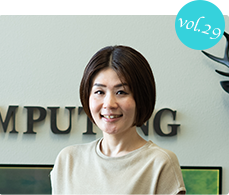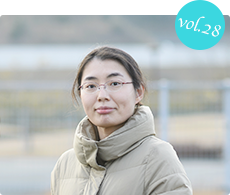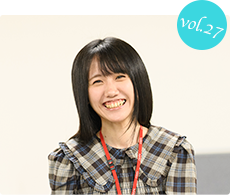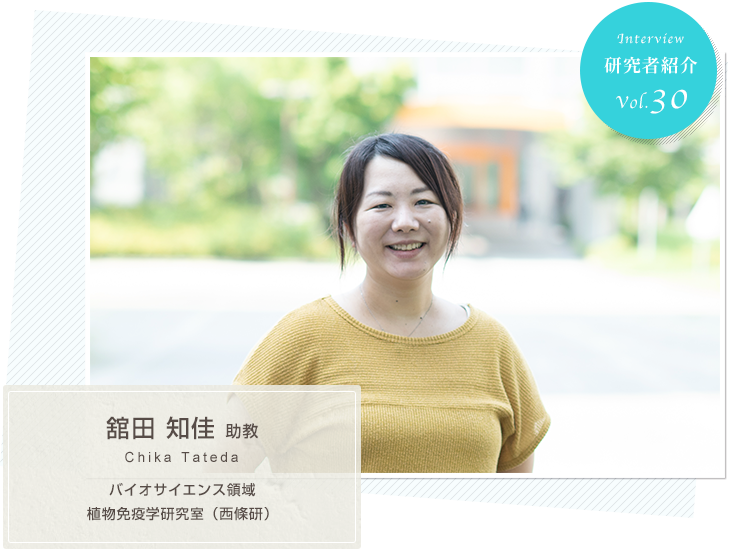
![]()
D. from the Graduate School of Life Sciences at Tohoku University in March 2010. 2010-2020: JSPS Research Fellow, JSPS Postdoctoral Fellowship Abroad (University of Chicago, USA), Postdoctoral Fellowship at the University of Chicago, and Research Fellow at the Iwate Biotechnology Research Center, where she conducted research on the survival defense of pathogens and plants when they encounter each other. She has been in her current position since April 2020.
Path to becoming a researcher
I am from Aomori Prefecture in the Tohoku region of Japan, and I started as a researcher when I was a high school student, when I decided that I wanted to work in my hometown of Aomori, where I could earn a livable salary and do something interesting. In a magazine in the career counseling room at the time, there was an article about a research institute in Aomori Prefecture called the Aomori Green Bio Center, and I learned that it was a prefectural research institute and that it also conducted research on topics that were catchy and interesting enough for high school students to understand. This made me think that agricultural research sounded interesting and that I might be able to do work directly related to agriculture, which is thriving in the Tohoku region, and I went on to study agriculture at the university.
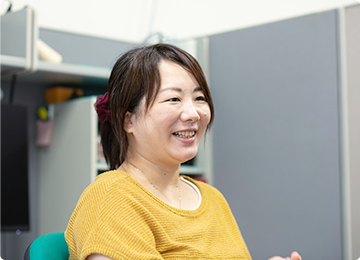
I decided to become a researcher when I decided to enter the Ph.D. program. In fact, at the time of my master's degree, I was looking for a job in a company and had received a job offer from a company for a research and development position. However, during the job search process, I decided that although corporate research sounded interesting, I wanted to continue doing basic research at the university and decided to continue in the Ph.
D. program. After receiving my Ph.D., I was not very good at English and wanted to do research in an English-speaking country, so I was accepted as a JSPS postdoctoral fellow at the University of Chicago in the United States. My original plan was to return to Japan after one year, but I was later accepted by JSPS and ended up staying for a little over five years.
After returning to Japan, I worked at the Iwate Biotechnology Research Center for five years. When I thought that I wanted to work on more detailed molecular mechanisms of the phenomena that I had discovered in my research there, there was an opening at the university at the right time, and I applied and was hired.
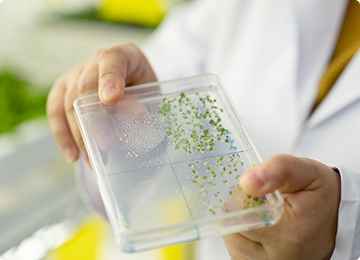
My research topic is how plants fight disease and how to protect them from disease. By unraveling the mechanism by which plants get sick in the field through basic research, I will be able to understand why some plants are strong and others are sick, and how to produce strong plants. It is also interesting to see the visible results of infecting stronger or weaker plants with pathogens. Through my research, I also hope to be able to bring the results of my research back to agriculture in the future.
Balancing research and life
During my research life in the U.S., I learned to "keep a good balance between concentrated effort and rest," and I try not to lose this principle in my daily life even after returning to Japan. I arrive at the university around 8:00 or 9:00 a.m. and return home around 7:00 p.m., no matter how late. A few times a month I stay until midnight, but only a few times. On Saturdays and Sundays I come to the university to take care of the plants, but I try not to schedule any experiments or discussions.
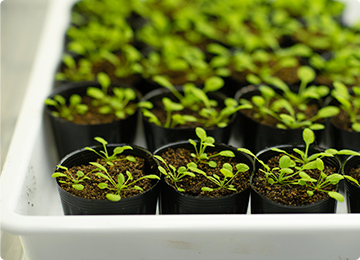
Before my research life in Chicago, I used to do research until midnight; I would start close to noon, like after 11:00, and go until midnight. I also did research on weekends. But Chicago nights are dangerous to begin with, so everybody goes home at a reasonable hour. And I enjoy my free time. The thing that changed my life was when a colleague asked me, "Do you enjoy doing nothing but experiments all the time?" I was told, "You should enjoy your life a little more. So I decided not to do experiments on Saturdays and Sundays, and I found that the amount of work I did was almost the same as before, which led me to my current lifestyle.
I still don't necessarily work at home, but except for urgent projects, I try to limit my work to thinking about my future research plans and interacting with researchers outside the office.
I like to drink, so I enjoy good sake at home on weekends. Nara has some interesting beers and sake, so I like to go to breweries and sake cellars in Nara City to buy them. If it weren't for the Corona disaster, I would be able to drink and walk around.
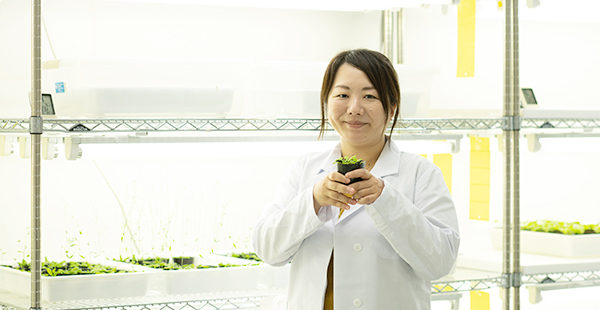
Research Environment and Challenges at NAIST
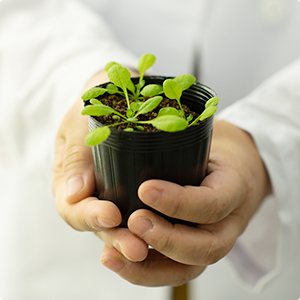
The research environment at NAIST is very good. We have shared equipment, and I really appreciate the fact that there are almost no equipment usage fees that other universities would charge. I think the research environment is really good. I think it would be even more interesting if I had more opportunities to interact with faculty members in other labs. Because of the Corona disaster, even when there are seminars, they are often online.
If I had a request for facilities on campus, I think there are not enough women's restrooms throughout the university. Especially in the biological sciences, where the percentage of female students is almost 40%, I think this is not up to date. It is especially crowded during breaks after classes, which can be a problem.
Also, it would be nice if there were cafes and restaurants within walking distance of the university that we could easily go to. I think campus life would be more enjoyable if I could write in an unusual place.
(August 2022)

-
2022.8 updated
Division of Information Science
-
2022.3 updated
Division of Biological Science
-
2022.3 updated
Division of Information Science






